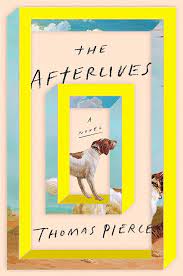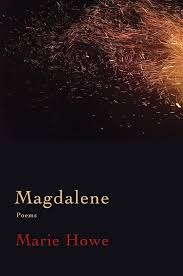
Word of mouth is powerful exchange in the market of book selling. No publicist can match it. Person A reads a book and recommends it to Person B, who immediately tells Person C, “You have to read this!” right on down the alphabet.
Me, I’ve had more recommendations via “word of author.” If I admire an author, I often read the writers he or she admires. Makes sense, doesn’t it? Especially if you believe as I do that writing is informed by the writers you admire, consciously or subconsciously.
My first reading extravaganza came thanks to the young and tortured anti-hero, Holden Caulfield, in The Catcher in the Rye. In an early scene in his private school dorm, Holden is found reading.
What’s the title? As the reader bends for a closer look, he finds it is none other than Out of Africa by Isak Dinesen. It might have been a strange choice for a teenager, but as a teenager myself, I hunted it down and read it as well, feeling cool in a Caulfield kind of way.
The other book Holden recommends in this scene is The Return of the Native. Thomas Hardy, the author, was the kind of guy you’d like to call up and talk to, Holden says. Though I was still in high school, I met Eustacia Vye because of Holden. Talk about a blind date! I made it to the end, too–classic or no–and even read a few more Hardy’s (most memorably, Tess of the D’Urbervilles).
Another great word-of-author guy is Ernest Hemingway. He loved to write about eating, drinking, and reading. In A Moveable Feast (misspelling and all), he shares the books he’s checked out of Sylvia Beach’s Paris bookstore, Shakespeare & Co. One was Turgenev’s A Sportsman’s Sketches, a book I took with me on a deer hunt in Maine.
We often associate books with location read, and that collection of stories will forever go down as the one in my hands when the early snowstorm socked us into a farmhouse on a Maine mountain. I’d rather read than hunt, anyway.
Hemingway also was reading Constance Garnett’s translation of War and Peace while playing the starving artist in 1920s Paris. That and Dostoevsky’s The Gambler and Other Stories. I credit Ernie with making me the Russophile that I am–at least when it comes to Russian literature from the golden age (19th century).
In The Green Hills of Africa, EH talks books some more. He’s still reading Tolstoy, in fact. “The Cossacks” and Leo’s other stories of Sevastopol. I bought these stories, too, and read them quickly and selfishly, like a hungry dog that doesn’t want to share his meal.
Hemingway doesn’t stop there. He has Stendhal while big-game hunting in Africa, reading Le Rouge et Le Noir. Suddenly and dutifully, I was reading Stendhal as well. I think I liked The Charterhouse of Parma even better, but I never would have read either if not for Ernie.
It’s like dominoes after awhile. When reading Tolstoy, I got to read books he mentioned. Chekhov’s short stories. Pushkin’s wonderful Belkin’s Tales. Lermontov’s atmospheric A Hero of Our Time, another short masterpiece featuring an anti-hero.
Perhaps it speaks to my shy nature as a teenager. Word of mouth was for the social sorts. Me, I hung out with writers in a vicarious way, and followed up on their every recommendation. That habit has brought nothing but literary gold, making me a “wealthy” man of sorts, at least if “well-read” counts for something on the stock exchange.
And if you find Tolstoy and Turgenev and Hemingway in my poems (and you will), it’s for a reason. Books that led me to books.








